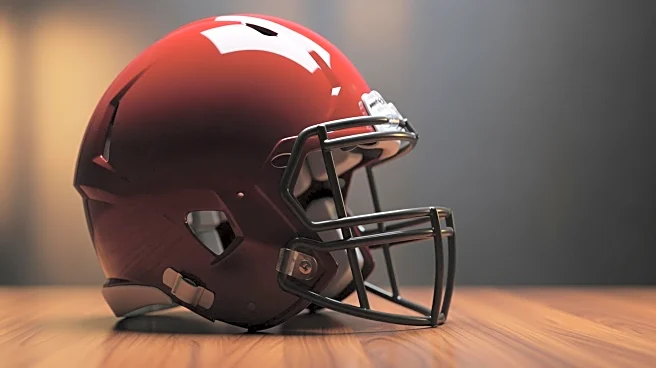What's Happening?
Marshawn Kneeland, a second-year defensive end for the Dallas Cowboys, was found dead with an apparent self-inflicted gunshot wound. The incident occurred after Kneeland evaded police during a pursuit,
crashed his car, and fled on foot. His girlfriend informed law enforcement that Kneeland was armed and had expressed suicidal thoughts. Kneeland's death has left his family, agent, and former teammates in shock, as he was known for his infectious energy and charm. Kneeland had recently scored his first professional touchdown during a game against the Arizona Cardinals, showcasing his potential in the NFL.
Why It's Important?
Kneeland's death highlights the ongoing issue of mental health struggles among athletes, particularly in high-pressure environments like professional sports. His passing serves as a reminder of the importance of mental health support systems within sports organizations. The NFL and teams like the Dallas Cowboys may need to reassess their mental health resources and support mechanisms to prevent similar tragedies. Kneeland's story underscores the need for open conversations about mental health and the pressures faced by athletes, which can often be hidden behind a facade of success and happiness.
What's Next?
The Dallas Cowboys and the NFL community are likely to engage in discussions about enhancing mental health support for players. There may be increased advocacy for mental health awareness and resources within the league. The Cowboys, along with other teams, might implement more comprehensive mental health programs to support their players. Additionally, Kneeland's family and friends may organize memorials or tributes to honor his life and legacy, while the NFL community reflects on the broader implications of his tragic death.
Beyond the Headlines
Kneeland's death could lead to a cultural shift in how mental health is perceived and addressed in professional sports. It may prompt ethical discussions about the responsibilities of sports organizations to their players' well-being. The tragedy might also influence long-term changes in policies related to athlete support, potentially leading to more proactive measures in identifying and assisting players who may be struggling with mental health issues.










